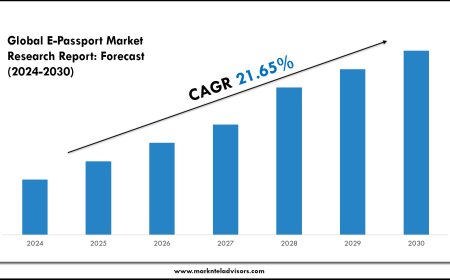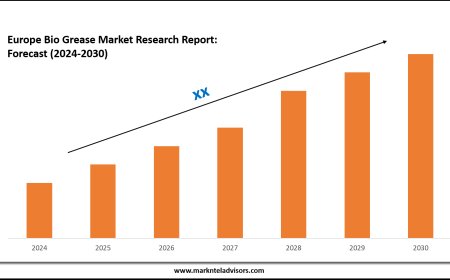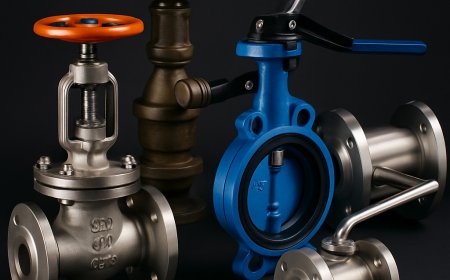EPC Rating for Non-Domestic Buildings: What You Need to Know
At Coventry Property Certification, we specialise in delivering accurate and reliable SAP EPC and non-domestic EPC services to help you meet regulatory requirements and enhance your property's value.
When it comes to energy efficiency, its not just homes that need to meet modern standards. Commercial and industrial buildings must also be assessed and certified. This is where the EPC rating for non-domestic properties becomes essential. Whether youre a landlord, property manager, or business owner in Coventry or anywhere in the UK, understanding these ratings is crucial to remain compliant and energy-conscious. At Coventry Property Certification, we specialise in delivering accurate and reliable SAP EPC and non-domestic EPC services to help you meet regulatory requirements and enhance your property's value.
What Is a Non-Domestic EPC Rating?
An EPC rating for non domestic buildings, also known as a commercial EPC, provides an energy performance certificate for properties not used as dwellings. These include offices, shops, warehouses, factories, and other commercial spaces. Just like domestic EPCs, the rating ranges from A (most efficient) to G (least efficient). The rating is calculated based on the buildings energy usage, carbon emissions, insulation quality, heating systems, and more.
The purpose of the non-domestic EPC rating is to inform property owners, buyers, tenants, and investors about the buildings energy efficiency and potential energy-saving improvements. With sustainability becoming a business priority, an improved EPC can also help reduce operational costs and carbon footprint.
When Do You Need a Non-Domestic EPC?
A non-domestic EPC is legally required in the UK when:
-
A commercial property is built
-
A property is sold or rented out
-
Major renovations or changes to heating and cooling systems are carried out
Failure to present a valid EPC rating for non-domestic buildings can lead to fines and penalties. Thats why its essential to consult professionals like Coventry Property Certification for timely, accurate assessments.
What Is SAP EPC?
SAP EPC stands for Standard Assessment Procedure Energy Performance Certificate. It is primarily used for newly built residential properties, conversions, or dwellings that have undergone significant change. SAP assessments are government-approved methods used to calculate energy performance and CO2 emissions.
Even though SAP EPC assessments are typically associated with residential properties, the methodology and data from SAP can still influence decisions around commercial buildings, especially mixed-use developments.
At Coventry Property Certification, we offer both SAP EPC for residential projects and non-domestic EPC services, ensuring all your properties comply with UK regulations.
EPC Ratings: Key Benefits for Non-Domestic Properties
Understanding and improving your EPC rating for non-domestic buildings comes with several advantages:
1. Legal Compliance
The UK government mandates that most commercial properties must have an EPC before being sold or leased. Compliance ensures you avoid fines and helps transactions proceed smoothly.
2. Energy Cost Savings
An efficient property costs less to run. A better EPC rating means your building uses less energy, leading to lower utility billsa crucial benefit for any business.
3. Sustainability Goals
As environmental regulations tighten, a good EPC score supports your businesss sustainability efforts. Its also great for public relations and stakeholder trust.
4. Increased Property Value
Energy-efficient properties are more attractive to tenants and buyers. A strong non-domestic EPC rating can add value to your commercial investment.
How EPC Ratings Are Assessed
For non-domestic properties, the EPC rating is calculated using the SBEM (Simplified Building Energy Model) methodology. The assessor will:
-
Survey the building structure
-
Evaluate lighting, ventilation, heating, and cooling systems
-
Examine insulation, glazing, and other energy features
-
Input data into approved software to generate the EPC
For SAP EPC, a different set of data inputs and calculations are used, mainly focusing on new build specifications and compliance with Part L of Building Regulations.
Choosing the Right EPC Provider
Getting your EPC done professionally is key to ensuring accuracy and compliance. At Coventry Property Certification, we pride ourselves on offering:
-
Fully accredited assessors
-
Competitive pricing
-
Fast turnaround times
-
Nationwide coverage with a strong local presence in Coventry and the Midlands
We dont just hand over a certificatewe provide actionable advice to help you improve your EPC rating, reduce costs, and prepare for future regulations.
Common Mistakes to Avoid
-
Waiting until the last minute Always schedule your EPC early to avoid delays in selling or renting.
-
Ignoring potential improvements Small upgrades like LED lighting or better insulation can significantly boost your rating.
-
Using unqualified assessors Always check your EPC provider is accredited and experienced, like our team at Coventry Property Certification.
How to Improve Your Non-Domestic EPC Rating
If your commercial property scores poorly, dont worrythere are several ways to improve it:
-
Upgrade heating and cooling systems to energy-efficient models
-
Install double glazing and improve insulation
-
Switch to LED or smart lighting
-
Integrate renewable energy sources like solar panels
-
Regularly maintain HVAC systems
We can help you identify which changes will have the biggest impact, both on your EPC score and your bottom line.
Get Your EPC Today
Whether you need a non-domestic EPC rating for a commercial unit or a SAP EPC for a new build, Coventry Property Certification is your trusted partner. We bring years of experience, qualified expertise, and a commitment to delivering fast and accurate energy assessments.
Contact us today to book your EPC or request a free consultation. Lets work together to make your property greener, more efficient, and fully compliant.




































